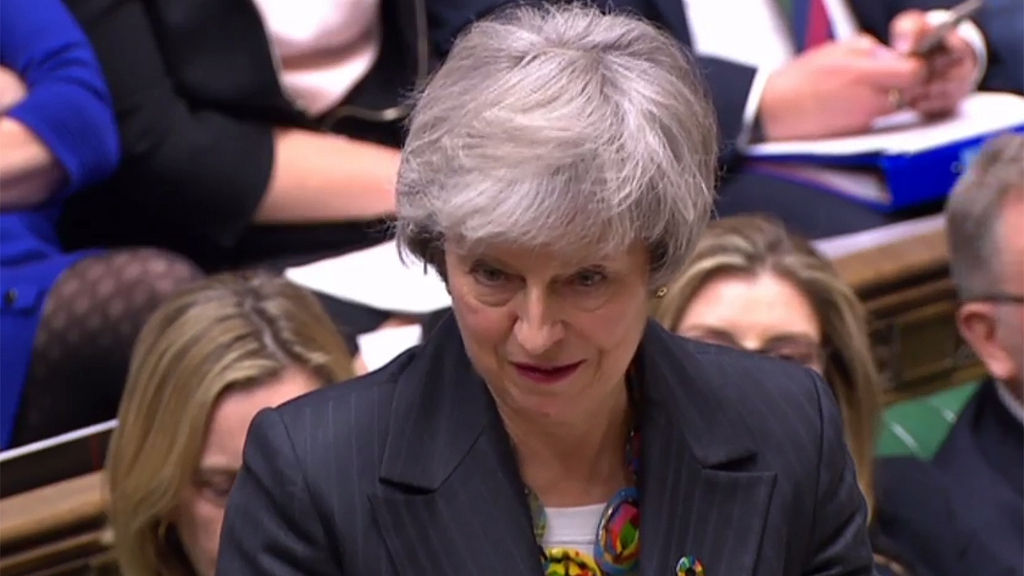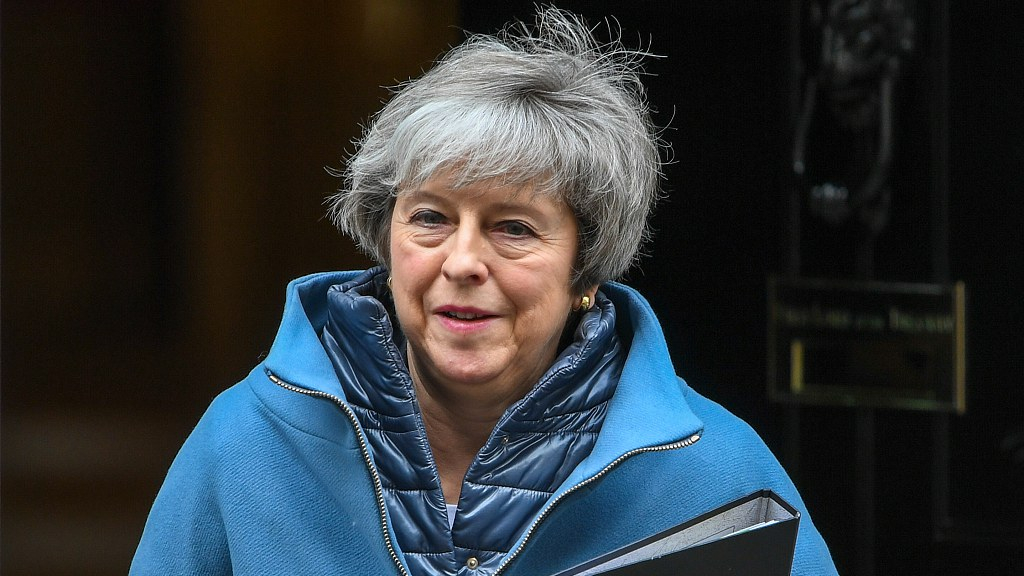
Europe
22:55, 12-Feb-2019
May seeks more time for Brexit talks
CGTN
03:30

British Prime Minister Theresa May asked MPs Tuesday to give her more time to try and revive her Brexit deal with the EU in what the opposition said was a ploy to "run down the clock".
May told ministers that parliament, which last month roundly rejected her Brexit deal, would not vote on a revised deal this week as she needed more time to negotiate with the EU. Media have reported a fresh vote is not expected until late February at the earliest.
If no agreement is reached by February 26, then MPs will get more non-binding votes on Brexit options the following day. The final vote on whether Britain leaves the EU on March 29 with a deal would be pushed back into March.
"She said it is clear that these discussions with the EU will need a little more time to conclude and so we will not be bringing forward a meaningful vote this week," a spokesperson for May's office said in a statement following May's weekly meeting with her cabinet of ministers.

British Prime Minister Theresa May leaving her official residence to make a statement in parliament in London, February 12, 2019. /VCG Photo
British Prime Minister Theresa May leaving her official residence to make a statement in parliament in London, February 12, 2019. /VCG Photo
Parliamentary experts have said that even if May succeeds in getting a deal approved by lawmakers, Britain may need to request an extension to the Article 50 exit negotiation period in order to approve necessary legislation.
After it has voted to support her deal, parliament must also pass a law – the Withdrawal Agreement Bill – formally ratifying the agreement.
Asked by a lawmaker whether an extension was now inevitable due to a legal requirement that the government lay a treaty before parliament 21 sitting days before it can be ratified, May said the government may fast track that process.
"While we will follow normal procedure if we can, where there is insufficient time remaining ... we will make provision in the Withdrawal Agreement Bill, with parliament's consent, to ensure that we are able to ratify on time to guarantee our exit in an orderly way," May said.
The 21-day period is usually intended to give parliament time to study an agreement but it will already have had plenty of time to do so as the deal was reached last year, May said.
Several previous major bills on Britain's relationship with Europe have taken more than 30 sitting days to pass. After this week, there are just 26 sitting days left before March 29.
"I am sure that when a meaningful vote has been agreed in this house then every member ... will want to ensure that they are able to operate on a timetable that enables us to leave at the end of the two year period agreed," May added.
In a statement to parliament to update lawmakers on her negotiations with the EU to secure changes to the Brexit deal, May said she wanted lawmakers from all parties to back the Brexit deal she is aiming to strike, citing the need to pass further legislation to prepare for Britain's exit from the EU.
"It is actually, I think, in the interests of this parliament, and in the interests of taking legislation through, that we see a strong vote from across the whole house," May told parliament.
May said again she did not see a customs union as proposed by the opposition Labor Party as the way to secure agreement.
"The talks are at a crucial stage and we now all need to hold our nerve to get the changes this House requires and deliver Brexit on time," she said. "By getting the changes we need to the backstop; by protecting and enhancing workers' rights and environmental protections and by enhancing the role of parliament in the next phase of negotiations, I believe we can reach a deal that this House can support."
Source(s): AFP
,Reuters

SITEMAP
Copyright © 2018 CGTN. Beijing ICP prepared NO.16065310-3
Copyright © 2018 CGTN. Beijing ICP prepared NO.16065310-3